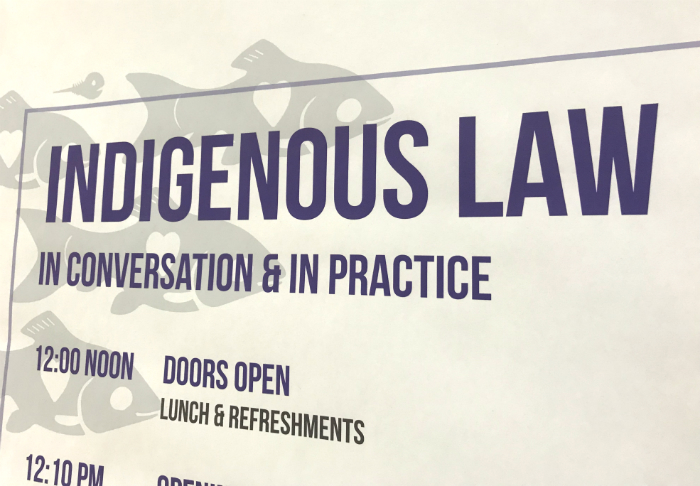The President of the Manitoba Indigenous Law Students Association (MISLAW) hopes changes are coming to the way lawyers deal with Indigenous laws.
Alyssa Bird and her MISLAW colleagues hosted a panel discussion at Robson Hall at the University of Manitoba Thursday afternoon, which included a conversation between two experts; the first being Elder Florence Paynter, a band member of Norway House Cree Nation and 4th degree Mide Anishinabekwe. The other was Joelle Pastora Sala, a lawyer at the Public Interest Law Centre who has worked with Indigenous leaders to help incorporate their laws in the system.
They touched on a number of topics during their discussion, including the definition of Indigenous law, its importance in various communities and what can be done to establish a connection between Indigenous law and Western law.
“I find the biggest clashes that happen between them are when it relates to the land,” Bird said. “Western laws were built on what is called the feudal system between lords of the land and the people who are the subjects on those lands.”
“Indigenous law has a completely different relationship to the land.”
Bird – who is also involved with the Student Pipeline Action Committee – says an event like this one is a good place to begin, but it’s just a starting off point.
“There is space for both sides to coexist but we need to get to that space in the middle where we can meet and talk with a mutual respect for each side for that to happen,” Bird said. “I think there has been a shift in the House of Commons that shows the Canadian government is beginning to meet in that middle space with Indigenous communities.”
“The interesting part is what’s going to happen in the next 20 years.”
Pastora Sala says Western laws have undermined Indigenous rights and laws since colonization.
“They have led to the displacement of Indigenous people, the dispossession of their land, the taking away of children, forced assimilation and the loss of language and spiritual and cultural identity,” Pastora Sala said. “We see that impact through the Child Welfare System and Missing and Murdered Indigenous Women and Girls, two concrete examples of failures in the Western system.”
Pastora Sala says it’s important to note that Indigenous laws haven’t gone anywhere but are often just overshadowed by the Western system. She’s hopeful future law students can learn from events like the one held today to bridge the gap.
“We need to ask Indigenous people how we can help them support their own processes and institutions so they can revitalize their own laws,” she said. “As those conversations are happening, we can talk about how Indigenous and Western laws relate to one another and start to think about what types of protocols need to be in place to ensure a healthy relationship.”












